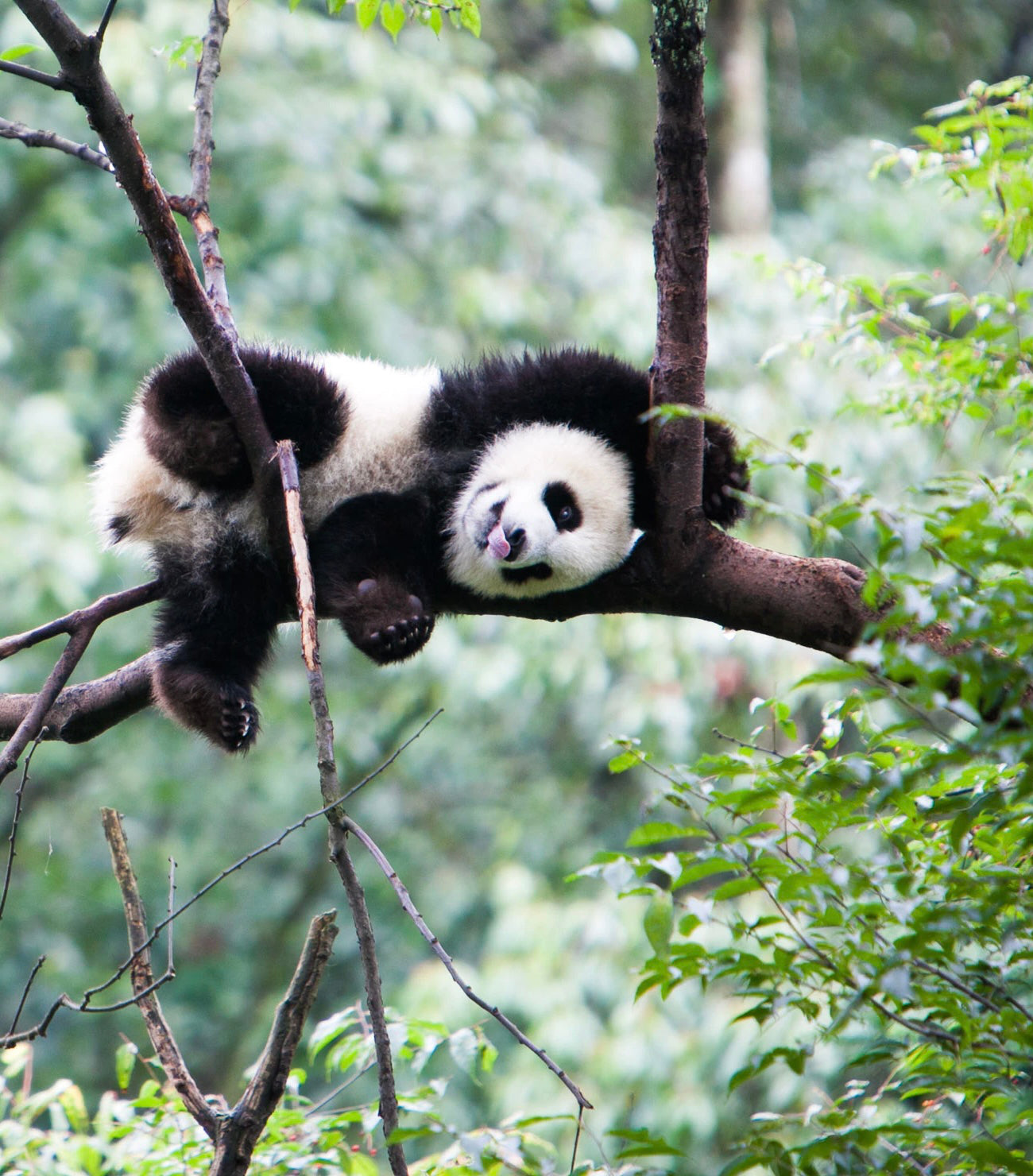Panda and Tea
Responsibility
Pandas have long been a global symbol of conservation and ethical responsibility.
Their story reflects values that align with sustainability, mindfulness, and respect for nature—principles that are at the heart of ethical tea cultivation.
Conservation Success Story
Once endangered due to deforestation and habitat loss, the giant panda has become a symbol of successful environmental stewardship.
Through dedicated conservation efforts, their numbers have risen to 1,864 wild pandas, raising their status from endangered to vulnerable species.

A Peaceful Existence
Unlike many large mammals, pandas are solitary, gentle creatures that avoid conflict, embodying a philosophy of living in harmony with nature.
This reflects an ethical approach to tea farming—respecting the land, nurturing biodiversity, and embracing sustainability.

A Plant-Based Lifestyle
Pandas thrive on a diet of bamboo; a renewable, low-impact resource, inspiring an ethic of conscious consumption.
Just as pandas rely on sustainable food sources, ethical tea cultivation prioritizes organic farming and eco-friendly practices.

The Nature of the Panda
Pandas thrive in the high-altitude bamboo forests of China, where nature remains untouched and pure—just like the finest tea leaves.
Ethical tea cultivation respects this purity, avoiding pesticides, harmful farming methods, and overharvesting to ensure that tea is grown in harmony with its natural environment.

A Panda Promise
Just like the rare and cherished panda, true tea craftsmanship is becoming more uncommon in a world of hurried production.
Pandas represent patience and a deep, enduring connection with nature - qualities that resonate with our commitment to traditional, time-honored tea.
With every cup, we aim to carry forward the story of the artisan hands and natural surroundings that shape each leaf.

